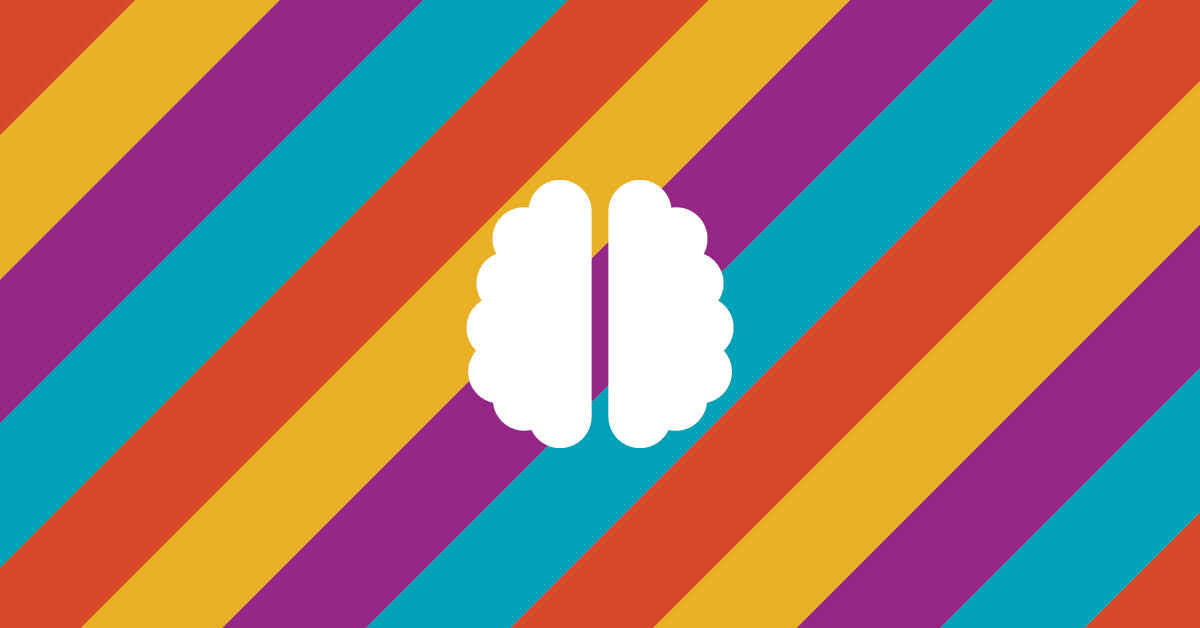What Is Epigenetics And Why Should I Care?
Really, what is epigenetics? And, why should anyone care? Let me ask you this first, have you felt like you have been or someone in your life has been a victim to their genes and DNA? Have you or someone you know had heart disease, cancer, diabetes or any other inherited disease and told that once you have it, that’s it and there are no other options.
I would like to invite you to a new possibility here, where there are options. Of course, medical intervention is important in these situations, and crucial too, but what if alongside that there are other options?
In order to understand what the other options are, let’s backtrack here and look at the present belief about our genes and how they control our biology.
- TRUE: It has been believed up till now that the genes code the proteins our bodies need.
- FALSE: It has been believed that one gene codes for one protein.
Why is that false? Because, after the Human Genome Project was completed they found that where humans should have 140,000 genes corresponding to each protein in the body, they found only 34,000.
How was this possible? And how are the other proteins coded for?
Up till now it had been thought that one gene codes for one protein, but after the Human Genome Project was completed they found that each gene can be read 30,000 different ways! This is where our options open up. Each gene can be read in more than one way, and up to 30,000 different ways.
The question then arises, what controls which way a gene can be read?
Our bodies can be likened to a sense organ, with different ways in which we perceive and sense our environment, ie our ears, our eyes, skin and so forth. These are like antennae, that perceive our environment and relay messages to the cells and then to the DNA. These messages then signal the genes to be read in a certain way.
This is the field of epigenetics, epi meaning, above, that the control of the genes isn’t the genes themselves but above the genes.
How Does This Fit In With Inherited Diseases?
We now know that just because the genes are being read a certain way, causing dis-ease, this can change to lead to positive gene expression. We can use the analogy of a car, just because it is driving in first gear, doesn’t mean it isn’t possible to shift gears and move to the second or fifth. When we shift how we perceive our environment, this shift can change how our DNA is read.
Our environment can either be perceived through our senses as being safe or in danger. When it is perceived as safe, the signals to the DNA and genes lead to proteins being produced that promote harmonious health. On the other hand when under stress, the signals to the genes lead to the opposite.
For example, in one study scientists have found that diabetics who spent an hour in front of a comedian or watching a comedy show, just through the process of moving into an elevated, joyous mood turn on positive gene expression of some 23 genes that changed their blood sugar levels without an insulin injection.
We aren’t victims to our genes, and we do have the power to shift our perceptions allowing for positive gene expression and health.
This in my opinion is why we should care.
Written By Charan Surdhar | Body Code Practitioner
www.charansurdhar.com
- i4 Neuroleader (353)
- Leadership & Culture (336)
- Brain Health & Wellbeing (206)
- Innovation (97)
- Performance (85)
- Our News (79)
- Collaboration (68)
- Agility (53)
- Practitioner Stories (44)
- In The Press (36)
- Make Me A Leader (33)
- Balance (31)
- Integration (30)
- Imagination (29)
- Awareness (23)
- Brain-Friendly Channel (22)
- Brain-Friendly Leadership (22)
- Communication (22)
- Curiosity (21)
- Inspiration (19)
- Intuition (19)
- Attitude (17)
- Courage (16)
- Adaptability (14)
- Case Studies (14)
- Drive (14)
- Generosity (13)
- Ethics (9)
- Mental Readiness (9)
- Influence (8)
- Retreat (8)
- Brain-Friendly Leadership (1)
- Oracle Cards (1)
- 1 November 2025 (2)
- 1 September 2025 (3)
- 1 August 2025 (5)
- 1 July 2025 (5)
- 1 June 2025 (2)
- 1 April 2025 (1)
- 1 March 2025 (8)
- 1 February 2025 (3)
- 1 September 2024 (4)
- 1 July 2024 (2)
- 1 June 2024 (6)
- 1 May 2024 (2)
- 1 April 2024 (3)
- 1 March 2024 (1)
- 1 November 2023 (1)
- 1 August 2023 (1)
- 1 July 2023 (2)
- 1 June 2023 (2)
- 1 May 2023 (4)
- 1 April 2023 (2)
- 1 March 2023 (7)
- 1 February 2023 (4)
- 1 January 2023 (1)
- 1 September 2022 (1)
- 1 May 2022 (3)
- 1 April 2022 (1)
- 1 March 2022 (5)
- 1 February 2022 (4)
- 1 January 2022 (4)
- 1 December 2021 (2)
- 1 November 2021 (4)
- 1 October 2021 (3)
- 1 September 2021 (6)
- 1 August 2021 (1)
- 1 April 2021 (1)
- 1 December 2020 (2)
- 1 November 2020 (1)
- 1 September 2020 (1)
- 1 August 2020 (1)
- 1 July 2020 (3)
- 1 June 2020 (4)
- 1 May 2020 (3)
- 1 April 2020 (4)
- 1 March 2020 (6)
- 1 February 2020 (4)
- 1 January 2020 (2)
- 1 December 2019 (3)
- 1 November 2019 (3)
- 1 October 2019 (5)
- 1 September 2019 (4)
- 1 August 2019 (4)
- 1 July 2019 (4)
- 1 June 2019 (5)
- 1 May 2019 (9)
- 1 April 2019 (9)
- 1 March 2019 (8)
- 1 February 2019 (7)
- 1 January 2019 (8)
- 1 December 2018 (5)
- 1 November 2018 (10)
- 1 October 2018 (16)
- 1 September 2018 (9)
- 1 August 2018 (10)
- 1 July 2018 (9)
- 1 June 2018 (8)
- 1 May 2018 (9)
- 1 April 2018 (9)
- 1 March 2018 (9)
- 1 February 2018 (8)
- 1 January 2018 (8)
- 1 December 2017 (6)
- 1 November 2017 (9)
- 1 October 2017 (9)
- 1 September 2017 (8)
- 1 August 2017 (10)
- 1 July 2017 (8)
- 1 June 2017 (8)
- 1 May 2017 (9)
- 1 April 2017 (8)
- 1 March 2017 (6)
- 1 January 2017 (3)
- 1 December 2016 (4)
- 1 November 2016 (5)
- 1 October 2016 (4)
- 1 September 2016 (2)
- 1 August 2016 (4)
- 1 July 2016 (4)
- 1 June 2016 (2)
- 1 May 2016 (3)
- 1 April 2016 (3)
- 1 March 2016 (7)
- 1 February 2016 (2)
- 1 January 2016 (5)
- 1 December 2015 (2)
- 1 November 2015 (2)
- 1 October 2015 (4)
- 1 September 2015 (2)
- 1 August 2015 (2)
- 1 July 2015 (1)
- 1 June 2015 (3)
- 1 May 2015 (4)
- 1 April 2015 (5)
- 1 March 2015 (3)
- 1 February 2015 (3)
- 1 January 2015 (3)
- 1 December 2014 (3)
- 1 November 2014 (3)
- 1 October 2014 (3)
- 1 September 2014 (5)
- 1 August 2014 (4)
- 1 July 2014 (5)
- 1 June 2014 (3)
- 1 May 2014 (1)
- 1 March 2014 (1)
- 1 December 2013 (2)
- 1 November 2013 (1)
- 1 July 2013 (1)
- 1 June 2013 (1)
- 1 May 2013 (3)
- 1 April 2013 (1)
- 1 March 2013 (2)
- 1 February 2013 (1)
- 1 January 2013 (2)
- 1 November 2012 (1)
- 1 October 2012 (1)
- 1 September 2012 (1)
- 1 August 2012 (2)
- 1 July 2012 (1)
- 1 June 2012 (1)
- 1 May 2012 (2)
- 1 April 2012 (1)
- 1 February 2012 (1)
- 1 January 2012 (1)
- 1 November 2011 (1)
- 1 October 2011 (3)
- 1 September 2011 (2)
- 1 July 2011 (1)
- 1 June 2011 (1)
- 1 May 2011 (1)
- 1 April 2011 (1)
- 1 March 2011 (1)
- 1 February 2011 (2)
- 1 January 2011 (4)
- 1 December 2010 (4)
- 1 November 2010 (3)
- 1 October 2010 (5)
- 1 September 2010 (4)
- 1 August 2010 (4)
- 1 July 2010 (3)
- 1 June 2010 (4)
- 1 May 2010 (7)
- 1 April 2010 (5)
Subscribe by email
You May Also Like
These Related Stories

What The Heck Is A Neuroleader Anyway?

Love, Fear And Indulgence! What Showed Up For Me At The i4 Live Retreat Program



No Comments Yet
Let us know what you think